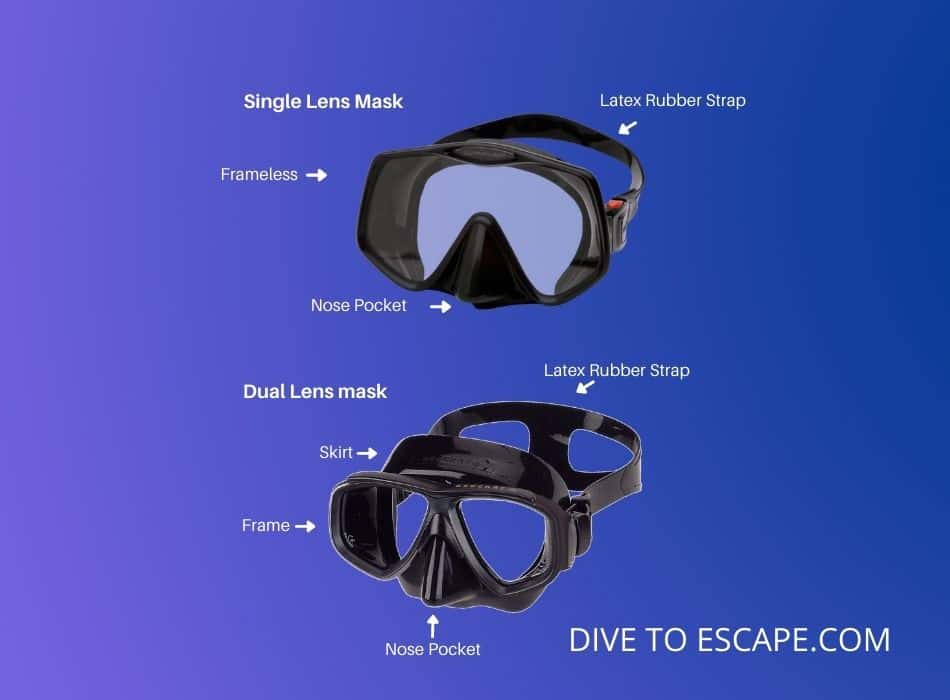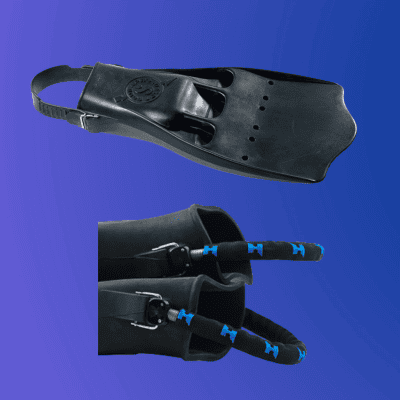Welcome to the vibrant world of scuba diving! Congratulations on taking the plunge into your Open Water Scuba course. You’re about to embark on an exhilarating journey filled with adventure, discovery, and unforgettable underwater experiences.
Dive right into your training and commit to receiving the best possible training. In scuba diving, having the best training is just the beginning. Having the right equipment to start with will make your journey more enjoyable and save you money and get you diving more often. Take a simple approach to diving; focus on safety, modern gear and getting the right equipment from the start. That way, you will avoid any unnecessary upgrades down the road, costing you extra money and hopefully not zapping your joy for diving. Let’s get into it!
What Every New Diver Needs:
As a budding underwater explorer, you’ll need essential snorkelling gear(also known as your personals): a mask, strap, fins, a snorkel, boots, and a surface marker buoy (SMB). While these are the basics, feel free to dive deeper into your gear collection with exposure suits and even your very own scuba system.
Please keep in mind that I have links to suggested products, and our site will receive a small commission if you buy anything by clicking on these links, for which we are grateful. But I recommend exploring their equipment and pricing if you’re doing your open water scuba course with a dive shop. I say this for two reasons: 1. Dive shops normally have good discounts for new students to encourage them to buy their personels there. 2. If all divers buy all their equipment online, our local dive shops will go out of business, and without our local shops, we would have no personal service and nowhere to get air fills. That doesn’t mean you should support your local dive shop even when they give you horrible service! Use your discretion and discernment.
Your Underwater Essentials Unpacked:
Mask: Your window to the breathtaking underwater realm. Opt for a low-volume silicone mask with tempered glass for clarity and durability. Black silicone skirts are your best bet for reducing glare and enhancing underwater visibility.
If you are looking for some suggestions for a dive mask, Click Here

We have a full article on what to look for in a dive mask. If you need more details, click here.
Fins: Say goodbye to flimsy fins! Choose stiff, spring heel strap fins for superior fit, comfort, and propulsion, ensuring you glide through the water like a marine pro.
The link will give you some examples. Click Here

Snorkel: Stick to something simple and cost-effective – unless you’re a snorkelling aficionado. Invest the savings in better fins or a mask for an enhanced diving experience.
Suggestions click here

Boots: Comfort is key! Try on 5-7mm neoprene boots with your fins for the perfect fit, and make sure they snugly overlap with your wetsuit to keep you toasty underwater.
Suggestions Click here

DSMB: An essential piece of safety equipment to signal your location to surface teams during drift dives or emergencies.
Suggestions Click Here

Dive into a World of Possibilities: Beyond the Open Water course, a treasure trove of advanced training options awaits you. From Advanced Open Water to specialized courses like Ice Diving and Cave Diving, scuba diving will open the door to continuous education to add to all the adventure.
Often, dive shops offer exclusive savings on additional courses, like combining the Open Water course with Drysuit Diver certification for a warmer, more comfortable dive experience or the Enriched Air Nitrox course to extend your underwater adventures. Depending on your commitment to diving, it’s a good idea to explore your options with your dive shop when you get started on your dive journey.
Embark on this thrilling journey and dive into a lifetime of underwater exploration and adventure. Remember, the ocean is your playground, and we’re here to ensure you play it right!
My local Dive shop is Dan’s Dive Shop, where I recommend their open water program. Feel free to click the link to their website.
If you want to know what Open Water training is like with one of DDS instructors, Click Here.

